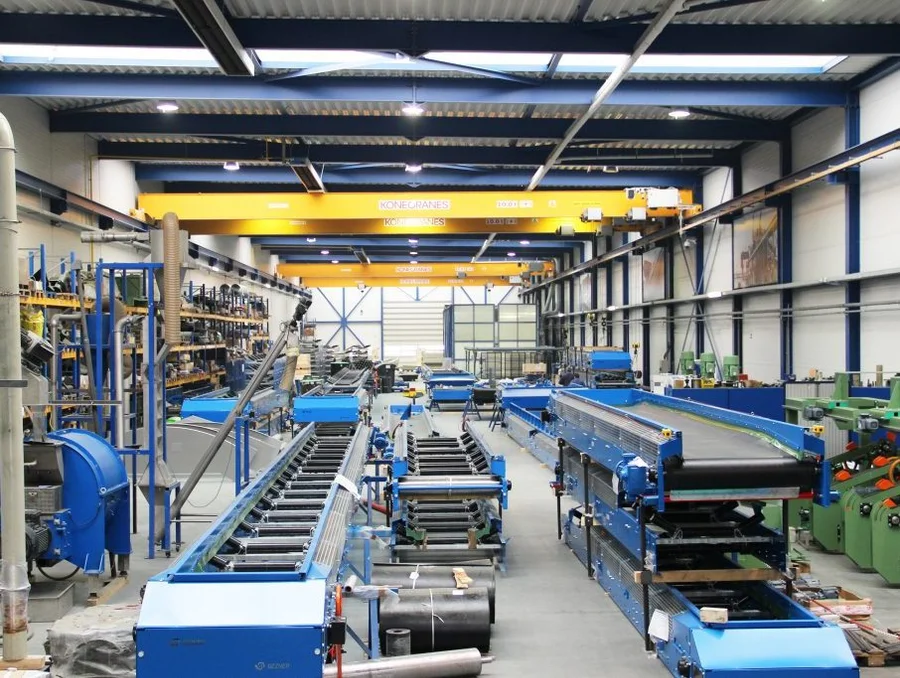New research from Accenture highlights the process to buy industrial equipment is often painful for manufacturers, offering advice on how to change this.
Buying industrial equipment and solutions is often a painful experience for manufacturers, according to new research from Accenture.
The company’s ‘Elevating the buyer experience in industrial B2B report‘ identified 1,600 pain points across two key industrial buying journeys.
The first was buyers looking for specific products, like standardised actuators or valves and the second was manufacturers seeking solutions like a metal press with an extended warranty bundle.
While both journeys comprise the same six key steps, the pain points identified were different for each distinctive buying journey.
Accenture in its report explains how manufacturers can address and overcome issues on both ends, creating a far more rewarding buying experience for all.
THE SIX STEPS IN THE BUYING JOURNEY
- 1. Search
- 2. Compare & select
- 3. Purchase & production
- 4. Delivery & installation
- 5. Invoicing & payment
- 6. After sales
What problems arise?
According to Accenture, the issues along the industrial product-buying journey occur primarily when buyers compare and select products – and have them delivered and installed – closely followed by issues with after sales services.
The least issue-ridden step is invoicing and payment.
A sizable 31% of the report’s pain points arise within after-sales, which is notable when you consider the percentage for the top issue for product-buying-selection-was only at 23%.
Solution buyers mostly complain about quality; meaning the standard or grade of a product or service, with high quality being associated with performance, satisfaction and durability.
They also feel dissatisfied by the reliability of the service, a sentiment which is felt strongest by product buyers. A third of the pain points they encounter are related to the consistency and dependability of suppliers.
The convenience of buying, ergo how easily they can navigate processes, interact with suppliers etc, is another aspect of the buying experience that sellers appear to struggle with.
With rising competition, manufacturers that overcome these challenges and master the buying process will put themselves in an excellent position to stand apart.
“Competition among industrial companies is fierce and growth is becoming harder and harder to achieve,” says Thomas Wrana, Industrial Customer Experience Lead at Accenture.
“Against this backdrop, a positive buyer experience can make all the difference.”
Accenture’s advice to improve the buying experience
In the report Accenture gives manufacturers a series of actionable steps, designed to help them massively improve the buying experience.
The first step? To identify bottlenecks, by taking the buyer’s view into account.
It’s critical here that the purchasing process aligns with buyers needs, rather than what is convenient for the seller.
Secondly the company recommends manufacturers pressure-test their customer-related IT initiatives against buyers’ expectations.
They stress that each initiative needs a clear measurable goal like improved reliability or faster quote delivery. Buying tools must also be made easier to use, removing the frustrations many buyers feel around clunky registration procedures and supplier-specific solutions on online portals and web services.
Finally, they say manufacturers must harness the power of AI and generative AI. Chatbots, note-taking assistants and recommendation engines can all greatly improve the buying experience for customers online.
Additionally the technology can help drive buyer insights from touchpoints, giving sales teams superior data to deliver improved, tailored customer experiences.
“Many industrial companies offer buying solutions that were already outdated ten years ago,” says Christian Wurmdobler, Industry Group Lead Industrials at Accenture Song.
“Companies must reinvent their traditional sales channels and tools by seamlessly blending technology with empathy to overdeliver on what buyers have come to expect.”
As demonstrated by companies like OneMagnify, AI has the capacity to truly elevate customer experiences in the manufacturing sector. With the urgent need to improve buying experiences, it’s impact could be vital moving forward.



